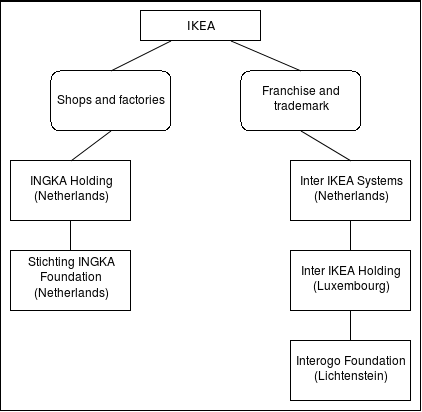How To Structure The Sale Of A Business
Post on: 13 Май, 2015 No Comment

Below we will cover the two types of sales (Asset Sale Vs Entity Sale), the tangible and intangible assets that may be included in the sale, and the different agreements that can be part of a sale of a business( consulting contracts, Covenant Not To Compete etc.).
The Difference Between An Asset Sale And An Entity Sale
There are two basic ways to sell your business: You can sell the buyer some or or all of your company’s assets (the Asset Sale method) or you can sell the buyer your corporation or LLC that owns the assets (the Entity Sale method).
If your company is a single proprietorship the sale will always be an asset sale.
If you company is an LLC or corporation, you have the choice of either approach.
Most buyers will want the sale to be an an asset sale because it limits their liability. When the buyer purchases your entity they become responsible for any of your liabilities (debts, legal claims etc.). With an asset sale, they are just buying the specific assets listed in the sales contract.
However, in a business sale everything is negotiable. so even with an entity sale the buyer may try to negotiate to have specific assets or liabilities removed from the sale.
Likewise, as the seller, you can choose to have any assets you want to keep removed from the sale. Accounts receivable, for example, are often retained by the seller regardless of the type of sale.
In addition to liability concerns, there are big differences between the two types of sales when it comes to taxes. So you definitely want to consult with your CPA and attorney when deciding what type of sale you want to pursue.
Side Bar
The term Assets Sale as used in the above section refers to the legal structure of the sale. Below we will talk a lot about the assets that make up a business. So when we use the word asset below, we are talking about all the things of value that the company owns such as real estate, inventory, equipment etc. So the question of whether you pursue an Asset Sale or an Entity Sale should not be confused with a discussion of the company’s assets.
The Tangible And Intangible Assets That Make Up The Sale
While there are big tax and legal differences between the two types of sale structures, one thing that is the same in both is that 20If%20You%20Had%20A%20Way%20To%20Know%20If%20A%20Buyer2.png /% you and the buyer have to agree on exactly what assets and liabilities are to be included in the sale.
Do you want to keep your company car?
The computer that sits on your desk?
How about the accounts receivable? Do you want to take them with you or will you add their value to the asking price and let the buyer try to collect on them?
Some assets that may be included in the sale are:
Tangible Assets
•Furniture, fixtures, and equipment (including cars, truck, forklifts, computers and printers etc.)
• Inventory (finished goods, works in progress, raw materials)
• Real estate (land, buildings, leases)
Intangible Assets
•Copyrights and patents
•Transferable rights to occupy leased property
•Accounts receivable
•Favorable contracts with suppliers
•Goodwill
Asset Allocation
In an Asset Sale, your profit from certain assets will be taxed as long term capital gains yet other profits will be viewed by the IRS as regular income.
Therefore, your tax bill may be dramatically affected by how the assets are allocated within the sale.
Quite often, what lowers your tax bill will raise the taxes of the buyer.
For example, the amount that the buyer pays you for Goodwill is considered a long term capital gain (as of this writing long term capital gains are taxed at 15%). So the more the buyer pays you for goodwill, the better for you.
However, the buyer must amortize the amount he paid for good will over 15 years — and that is not good for him when it comes to lowering his taxes.
On the other hand, the amount your are paid for inventory is viewed as regular income (and therefore a higher tax rate than the long term capital gains rate you pay on the goodwill). So obviously you would like the percentage of the selling price allocated to inventory to be as small as possible. But the buyer, who can expense inventory off as soon as it is sold, would like to see a high figure allocated toward inventory.

So in addition to the overall selling price, you and the buyer will need to negotiate the percentage of the selling price that is attributable to each type of asset that is included in the sale.
This may seem to hopelessly complicate the sales process, but in fact it can help to make the negotiation process more successful.
Let’s say, for example, that you and the buyer are at loggerheads over the price — he doesn’t want to increase his final offer and you don’t want to come down anymore than you already have. You could offer to reduce the price to meet his demands in exchange for shifting more of the selling price from inventory to goodwill.
Depending on your situation, you may save more in taxes than the amount you reduce the selling price.
Obviously, this is one area where you will rely on your account for guidance throughout.
Both you and the buyer must file IRS Form 8594 (Asset Acquisition Statement) with the IRS, so the two of you must come to an agreement on how much of the selling price will be allocated to each of the different asset classes included as part of the sale.
Agreements That May Be Part Of The Sale
In addition to the assets that are for sale, the sales contract may or may not contain certain agreements between you and the buyer regarding your future employment with the company and your ability to work in the same type of business for a different company.
Covenant Not To Compete. The last thing the buyer of a business wants is for the seller to immediately open a competing business across the street. The Covenant Not To Compete prohibits you from opening a specific type (or types) of business within a certain geographic range and for a specific period of time. In order to be legally binding, the buyer must pay you something.
Employment Contracts :Some owners will want you out immediately but others may want you to stay because your specialized knowledge or close relationship with customers.
If you want to stay involved until the business is paid off, or the buyer wants you to stay and run the business, it is advisable that you negotiate a specific employment agreement as part of the sale.
The exact length of your employment after the sale, your compensation (including perks and benefits) and your specific duties should all be part of the arrangement.
Consulting Agreements. Under a consulting agreement you are retained as an independent consultant for a specific period of time. As with the employment agreement, the consulting contract will spell out the exact services to be performed, the term of service and your compensation.
Unlike with the employment contract you will not receive perks or benefits. But you can set up your own consulting firm and that will allow you to deduct many of your expenses.
Often with a consulting agreement or employment contract, little work is done.
But both the buyer and seller benefit.
The selling price can be lowered in exchange for a lucrative consulting contract for example. The buyer can then pay less down and/or finance less and can deduct payments made under the arrangement as a business expense.
Meanwhile, you can receive payments spread out over several years, possibly reducing your taxes.














